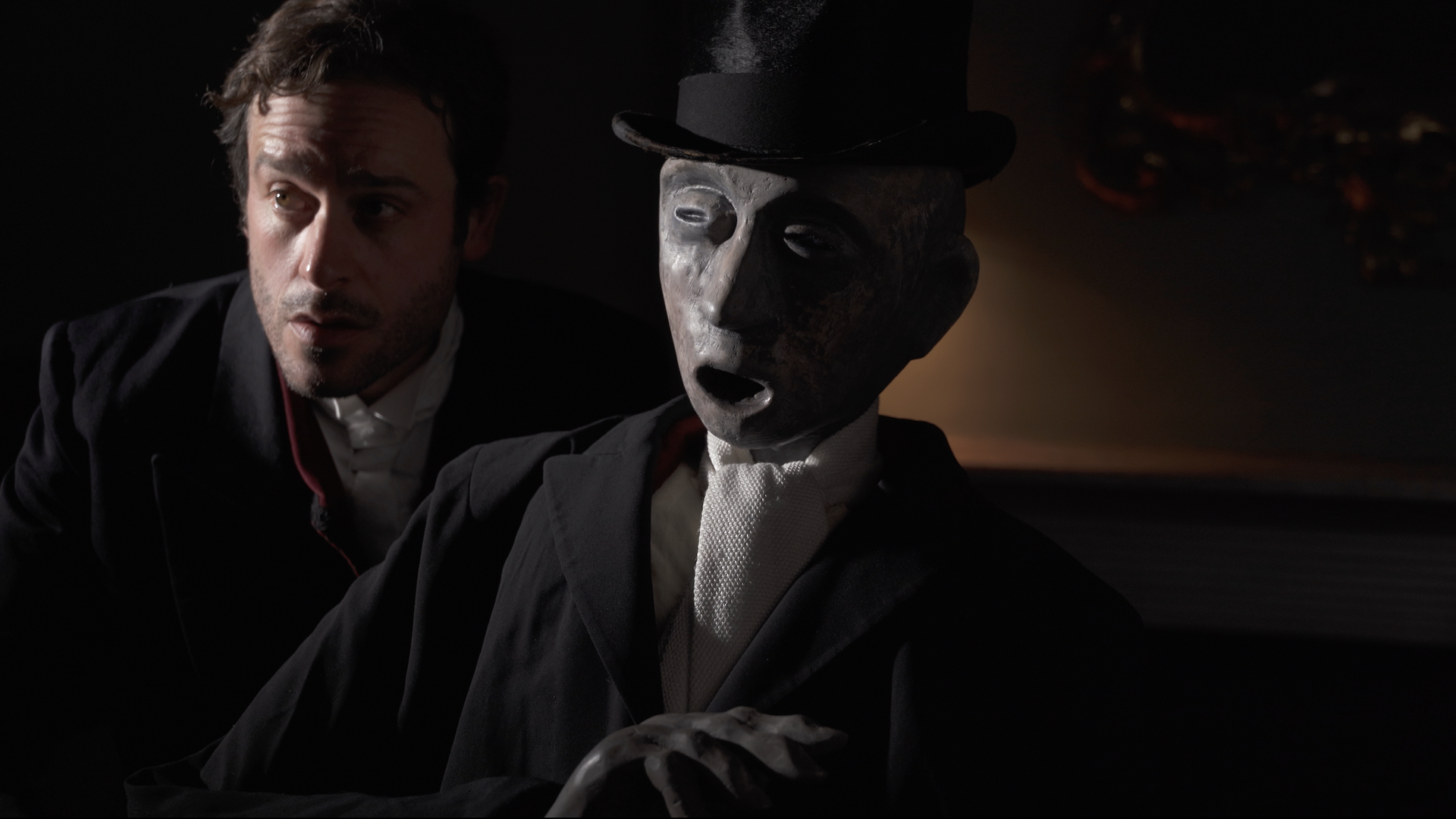
Tim Walker reviews A Christmas Carol, streaming from the Charles Dickens Museum on December 31
I missed catching up with old friends over Christmas, not least Scrooge and Dick Whittington.
I’d written the latter gentleman’s name in my diary half-heartedly as I knew there was a fair chance the reunion wasn’t going to happen. Sure enough, when London was put into Tier Three, I got the inevitable apologetic email from the National Theatre a few moments later saying their big festive production had been cancelled. It makes me feel desolate when I think of all the productions and performances I never got to see over the whole of the past year. All that laughter that was unlaughed.
All those tears unshed and the thoughts unthought. It was, however, especially hard during the festive season. I know how much worse it was for the actors, writers and directors who never got their chances to step out on to the boards.Still, it’s time to be grateful for small mercies. I did get to see old Scrooge again, albeit in a live-streamed production of A Christmas Carol from the Charles Dickens Museum in London. Dominic Gerrard has made this work his own over the years.
His declamations in my view are superior even to Simon Callow’s. I well remember the first time I sat in that building where Dickens once lived and breathed and saw this extraordinary actor casually walk into the room, take a look of the window, turn to the audience and bring this great Christmas tale alive for every one of us.
I’ve said it before and I will say it again: video is never going to kill the live show.
That said, the online version of this production is a classy, glossy and assured piece of work which succeeds on its own terms.
There’s imaginative direction by Gerrard’s long-time collaborator Tim Carroll, a haunting violin accompaniment by Alexis Bennett, atmospheric lighting by Alex Hyndman and a spirited music score and soundscape by The Sixteen collaborating with Alexander Armstrong.
Gerrard plays all the parts himself and he furnishes the voice, too, of Scrooge, but the character is physically realised by the puppet-maker Mandarava. He’s great hollow-eyed ogre at the start, but with Gerrard’s expert handling, a kinder, gentler presence at the end.
Gerrard is one of those actors you can throw into any situation and he triumphs. Put him in a room on a cold weekday morning with a group of people who largely don’t know the first thing about Dickens – that’s my first recollection of seeing him – and he is mesmerising. Put him on camera and he once again rises to the occasion. He gets the difference between theatre acting and performing for the camera, but he keeps alive the spirit of the work I first saw him perform on stage. He comes up with a genuinely theatrical experience that also works on camera.
He understands that for A Christmas Carol to really work he has to make his audience feel as if they are each and every one of them Scrooge.
The part requires them to think about their lives, understand what matters and what doesn’t and resolve to be bigger and better souls than they were.
Gerrard and his collaborators treat the work as if it’s holy writ and well they might. The structure of it alone is a work of genius: the ghosts that look at the past, present and future of poor old Scrooge divide it up perfectly and give it a natural momentum. There is also the mounting sense of dread that comes with the impending arrival of The Ghost of Christmas Yet to Come.
Sadly, there is a little bit of Scrooge in every one of us – sometimes all too much – and, with more people begging on the streets than ever, a plague ravaging the land and our leaders in Westminster preoccupied with their own careers and agendas, the story had particular resonance this Christmas.
The London of Dickens is, for sure, becoming unnervingly similar to the London of Boris Johnson: different times, comparable values.I always shed a few tears watching this in he flesh and I shed them, too, seeing it online, which is a measure of its success.
I might add I’ve heard some people asking lately if, in the scheme of things, theatre really matters.
I’d just say that if we’re entering a scheme of things where it doesn’t matter, then count me out. Let’s put a great big sign up on the White Cliffs of Dover saying this country has now completely lost its soul, as well as its marbles.
For more information visit dickensmuseum.com
Warning: Illegal string offset 'link_id' in /mnt/storage/stage/www/wp-includes/bookmark.php on line 357
Notice: Trying to get property 'link_id' of non-object in /mnt/storage/stage/www/wp-includes/bookmark.php on line 37







